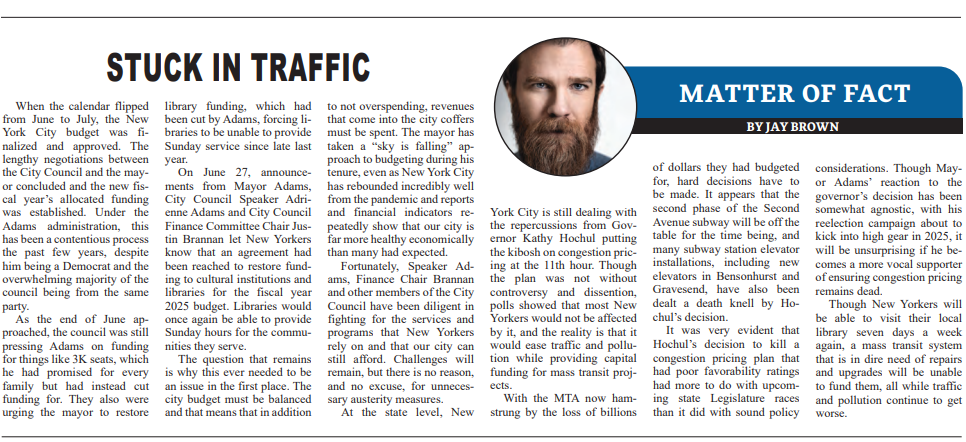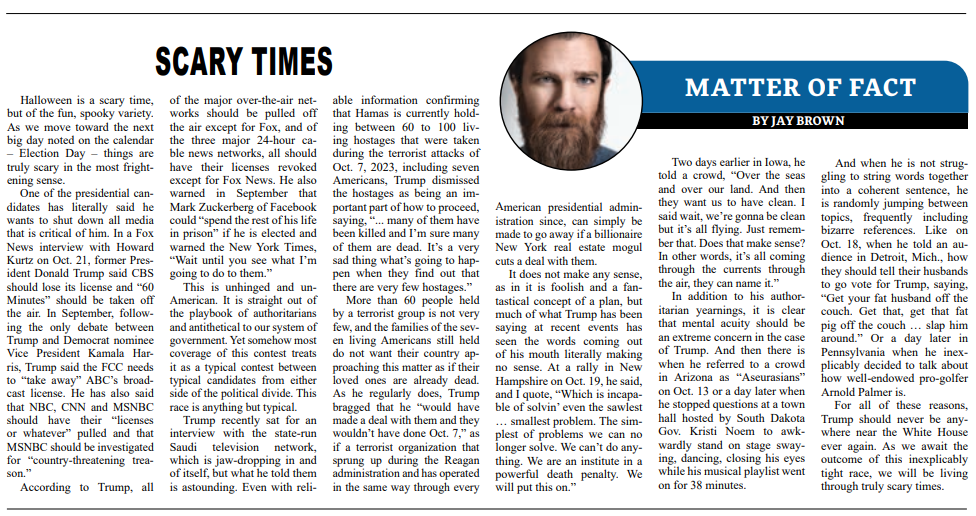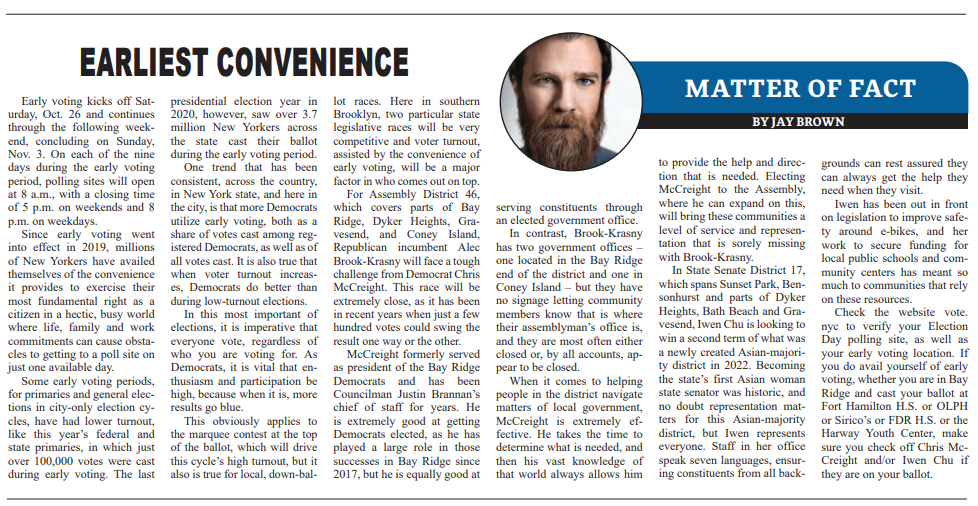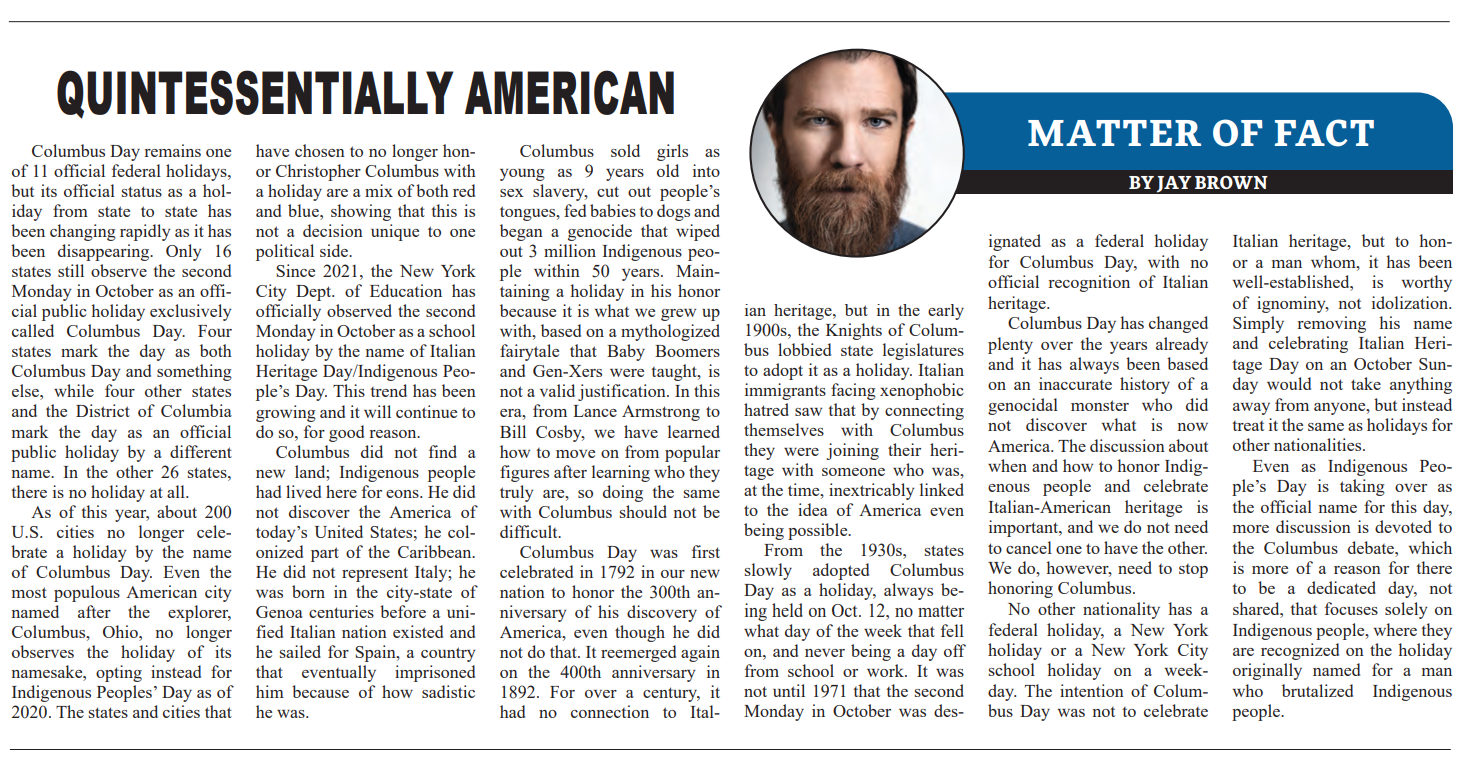This column, from the weekly opinion piece MATTER OF FACT, first appeared on BrooklynReporter.com, the Home Reporter and Spectator dated July 12, 2024
When the calendar flipped from June to July, the New York City budget was finalized and approved. The lengthy negotiations between the city council and the mayor concluded and the new fiscal year’s allocated funding was established. Under the Adams administration, this has been a contentious process the past few years, despite him being a Democrat and the overwhelming majority of the council being from the same party.
As the end of the month of June approached, the council was still pressing Adams on funding for things like 3K seats, which he had promised for every family but had instead cut funding for. They also were urging the mayor to restore library funding, which had been cut by Adams, forcing libraries to be unable to provide Sunday service since late last year.
On June 27, announcements from Mayor Adams, City Council Speaker Adrienne Adams, and City Council Finance Committee Chair let New Yorkers know that an agreement had been reached to restore funding to cultural institutions and libraries for the fiscal year 2025 budget. Libraries would once again be able to provide Sunday hours for the communities they serve.
The question that remains is why this ever needed to be an issue in the first place. The city budget must be balanced and that means that in addition to not overspending, revenues that come into the city coffers must be spent. The mayor has taken a “sky is falling” approach to budgeting during his tenure, even as New York City has rebounded incredibly well from the pandemic and reports and financial indicators repeatedly show that our city is far more healthy economically than many had expected.
Fortunately, Speaker Adams, Finance Chair Brannan, and other members of the city council have been diligent in fighting for the services and programs that New Yorkers rely on and that our city can still afford. Challenges will remain, but there is no reason, and no excuse, for unnecessary austerity measures.
At the state level, New York City is still dealing with the repercussions from Governor Hochul putting the kibosh on congestion pricing at the eleventh-hour. Though the plan was not without controversy and dissention, polls showed that most New Yorkers would not be affected by it, and the reality is that it would ease traffic and pollution, while providing capital funding for mass transit projects.
With the MTA now hamstrung by the loss of billions of dollars they had budgeted for, hard decisions have to be made. It appears that the second phase of the Second Avenue subway will be off the table for the time being, and many subway station elevator installations, including new elevators in Bensonhurst and Gravesend, have also been dealt a death knell by Hochul’s decision.
It was very evident that Hochul’s decision to kill the congestion pricing plan that had poor favorability ratings had more to do with upcoming state legislature races than it did with sound policy considerations. Though Mayor Adams reaction to the governor’s decision has been somewhat agnostic, with his reelection campaign about to kick into high gear in 2025, it will be unsurprising if he becomes a more vocal supporter of ensuring congestion pricing remains dead.
Though New Yorkers will be able to visit their local library seven days a week again, our mass transit system that is in dire need of repairs and upgrades will be unable to fund them, all while traffic and pollution continue to get worse.




